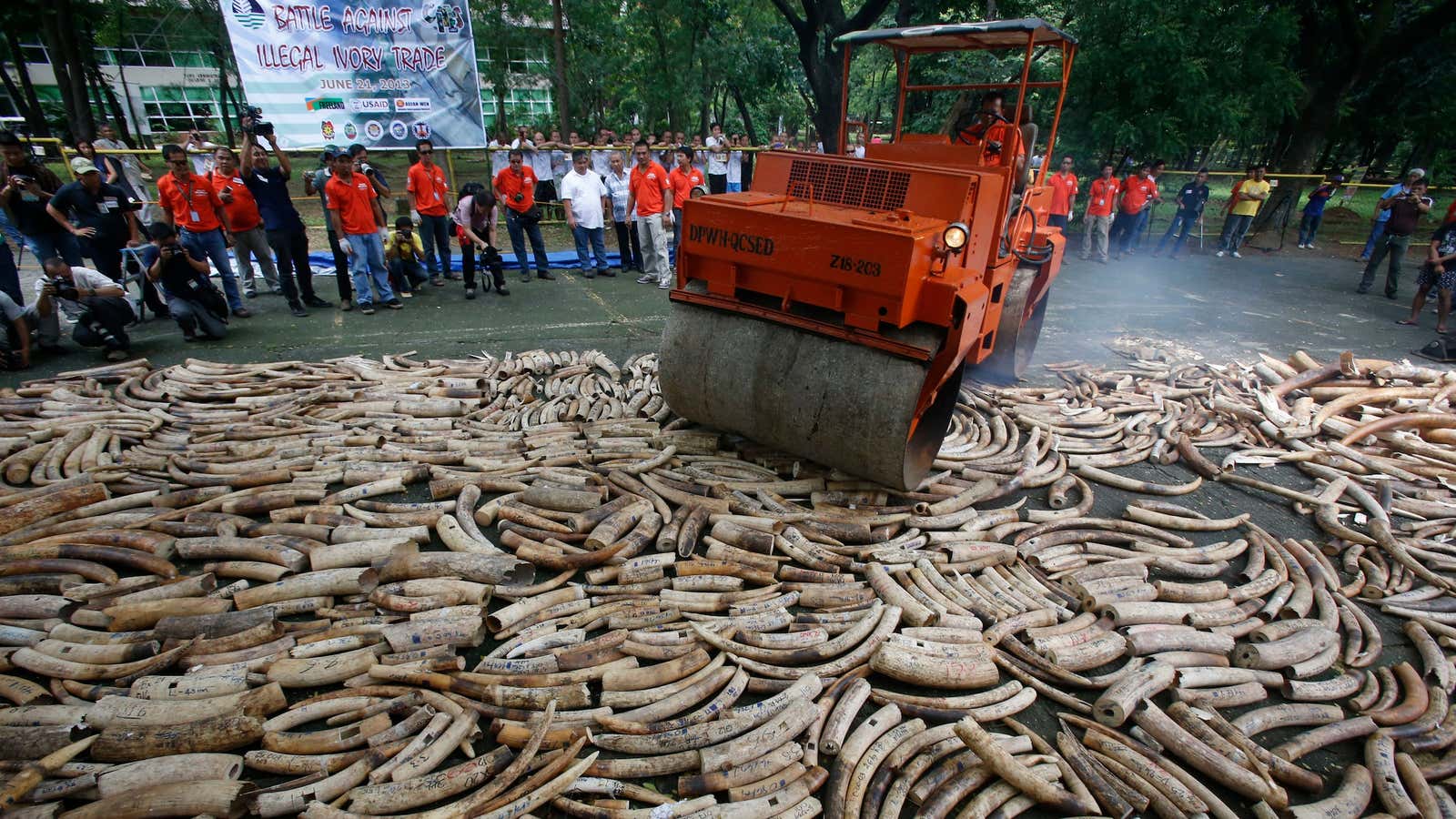On July 1, while wrapping up his trip to Africa, US president Barack Obama announced that he wants to get serious about thwarting black market trafficking in elephant tusks, rhinoceros horns and body parts of other endangered species. The added bonus, if not the underlying motivation, is that the crackdown would undermine the many organized crime syndicates, insurgent groups and terrorists that are flourishing on the continent. Here’s why:
Experts now say the illegal animal trade is a multi-billion dollar industry, second only to the drug trade in global profitability, and recently surpassing human and weapons trafficking. As Reuters reports, wildlife trafficking, organized crime and terrorism have become interwined in Africa. Transnational criminal gangs, paramilitary groups and al Qaeda affiliates use poaching to fund other illegal activities.
The primary attraction to the wildlife poaching business is simple: it’s extremely lucrative. In practice, however, it’s extremely complicated. It involves sophisticated smuggling operations that build on existing trafficking networks to transport, process and sell the animal parts for huge profits, mostly in Asia. Ivory from elephant tusks used to make jewelry sells for $1,000 a pound, and a rhino horn is now worth $30,000 per pound, “which is literally more valuable than its weight in gold,” according to senior US National Security Council official Grant Harris, who briefed reporters traveling with Obama in Africa. As Quartz described recently, rhino horn powder is used for cancer cures, hangover remedies and myriad other things, especially in Vietnam but also in China. It all adds up to a global wildlife trafficking industry worth between $7 billion and $10 billion a year, said Harris. These networks evade even the relatively stringent enforcement regimes of countries like Botswana and Thailand.
Given the staggering amounts of money to be made, many African governments have stepped aside or taken part, fueling corruption, money laundering and lax regulation. Rebel militias are even using ivory and rhino horns as currency, which has exacerbated local and regional conflicts. According to Obama’s executive order, the poaching operations have grown more sophisticated. What were once fragmented piecemeal poaching efforts are now coordinated slaughter campaigns that involve multiple illegal groups and target great apes, tigers, sharks, tuna and turtles, among other species.
Obama’s new campaign to fight wildlife trafficking includes an executive order, $10 million in funding, a task force and a presidential advisory council. The campaign will focus on helping affected countries establish and enforce better trafficking laws;, supporting regional cooperation; training their police and rangers; and beefing up their law enforcement and intelligence-gathering capacities. It will also use a new “Transnational Organized Crime Rewards Program” to offer bounties for poachers and push for more modern technologies to identify and capture them.
The US plan comes on the heels of an announcement in May by the United Nations that international wildlife (and timber) trafficking will now be defined as a serious organized crime. Both measures, according to advocates, will finally allow international law enforcement officials to investigate, arrest and prosecute poachers—especially those operating across borders.
